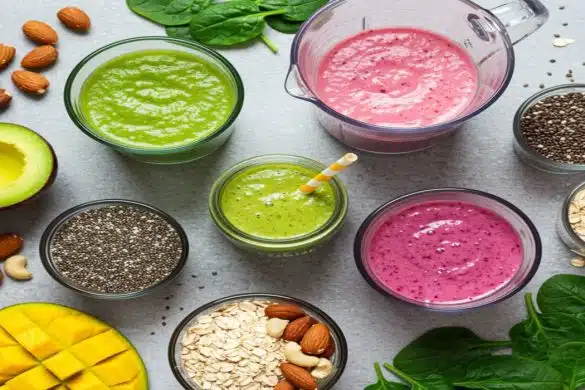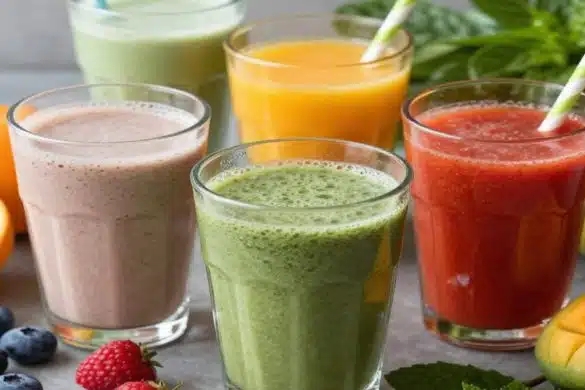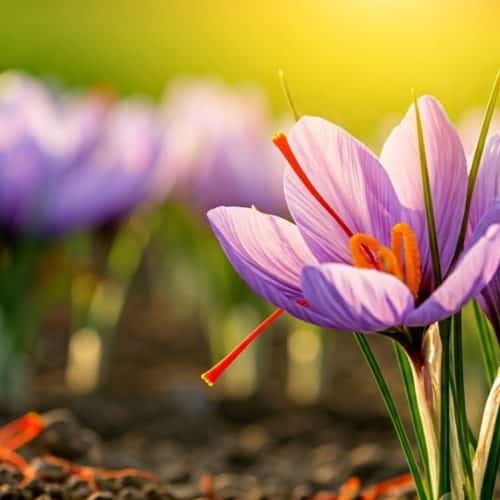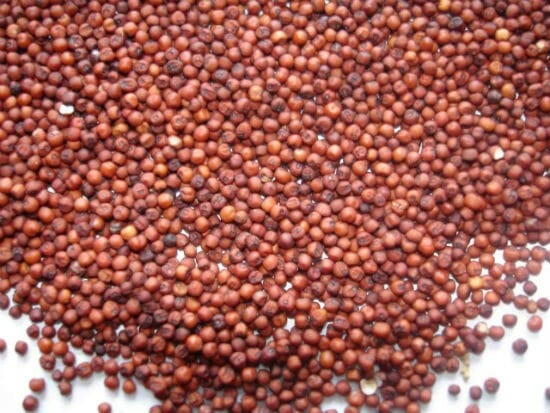Key Highlights
- Monsoon slows digestion, increases bloating, and raises the risk of infections.
- Light, home-cooked meals with seasonal fruits, vegetables, and immunity-boosting spices (ginger, turmeric, garlic) improve digestion and energy.
- Include probiotic foods like yogurt and buttermilk to support gut health.
- Avoid high-risk foods: seafood, mushrooms, raw leafy greens, fried/oily items, and street food.
- Stay hydrated with water, herbal teas, and fresh coconut water.
- Eat small, frequent meals to maintain energy and support weight management.
The monsoon season in India brings cool showers and much-needed relief after the scorching summer heat. But along with the pleasant weather come common health problems like indigestion, infections, and low immunity. Many people feel heavy, bloated, or tired during this time because the humidity slows down digestion. That’s why it’s important to eat mindfully and choose foods that suit the season.
Since our digestive system becomes more sensitive in the rain, oily and heavy foods are harder to process. The good news? A light, home-cooked monsoon diet can help you stay healthy, energetic, and less prone to seasonal illnesses.
In this blog, you’ll find a complete monsoon diet plan to keep you healthy and energized. It covers what to eat, what to avoid, and simple tips to stay healthy throughout the rainy season.
Which Food Items Should You Include in Your Monsoon Diet This Year?
Monsoon brings humidity and seasonal illnesses, making a healthy diet crucial. Choosing freshly cooked, light, and seasonal foods along with soothing herbal drinks can boost immunity, aid digestion, and keep you energised. These monsoon special food help improve digestion, immunity, and hydration:
1. Start Your Day with Warm Water and Lemon
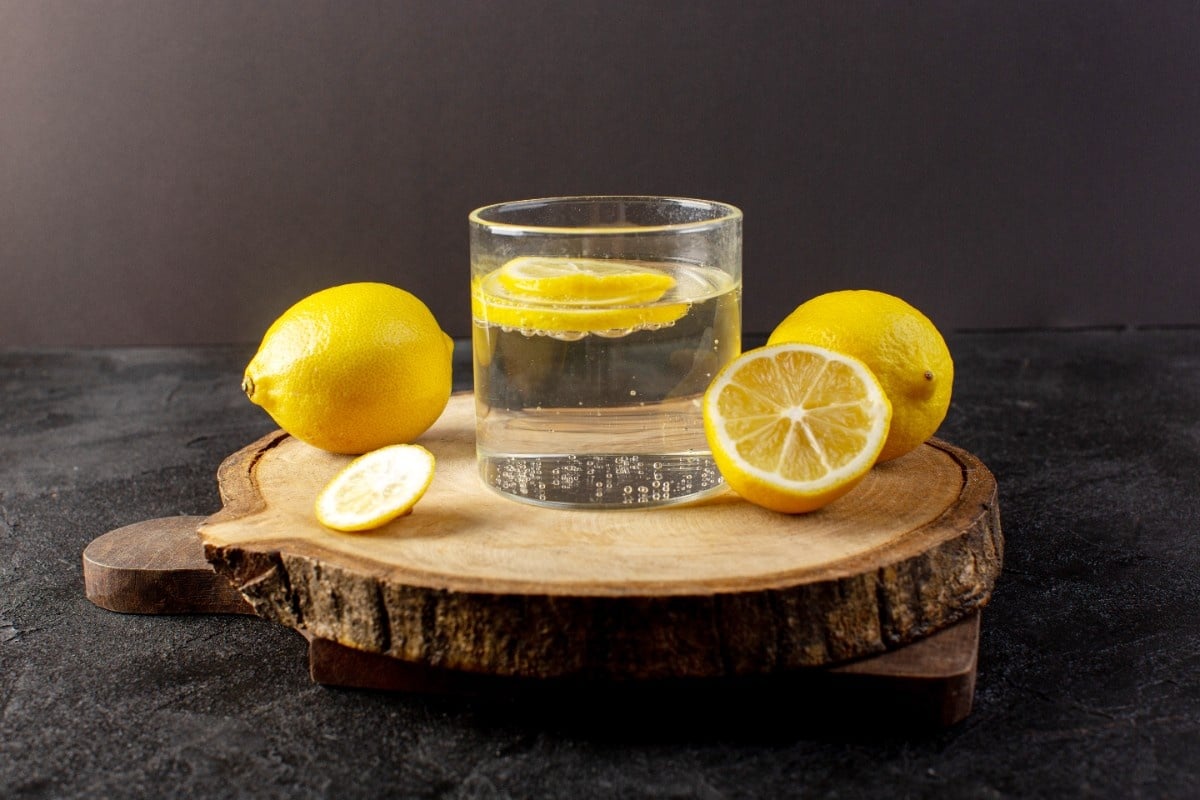
Warm Water and Lemon
Warm water with lemon first thing in the morning kickstarts metabolism, flushes out toxins, and aids digestion. It prepares the digestive system for the day, ensuring better nutrient absorption.
This simple ritual energises the body, enhances hydration, and supports weight management during the monsoon, while regular practice helps maintain gut health and immunity and promotes a refreshing start to a healthy, balanced rainy season diet.
2. Include Jamun in Your Monsoon Diet
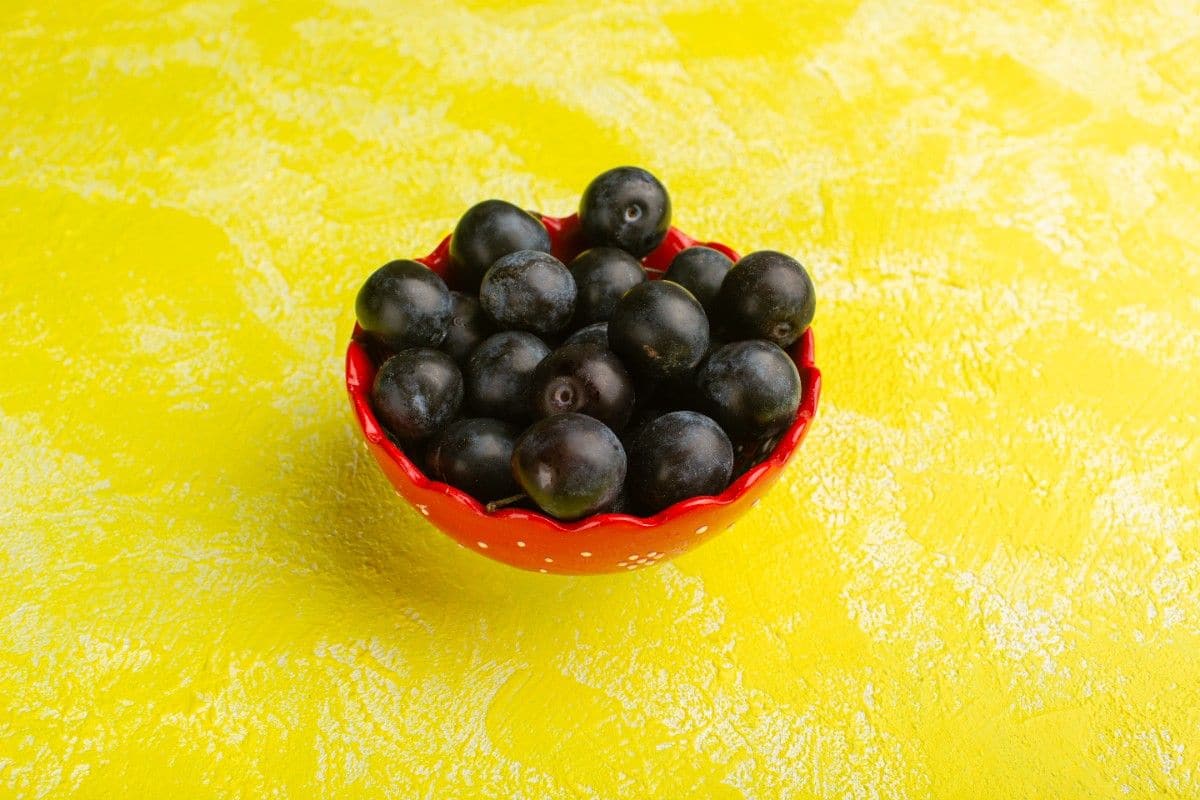
Jamun
Jamun is a seasonal fruit rich in antioxidants, vitamin C, and minerals, which strengthen the immune system and protect against monsoon-related infections. Its astringent properties aid digestion and prevent bloating.
Enjoy fresh jamun as a snack, or mix it in smoothies. Regular consumption can help maintain energy levels, support gut health, and keep the body resilient against the damp, humid conditions of the rainy weather.
3. Boost Digestion with Bitter Gourd
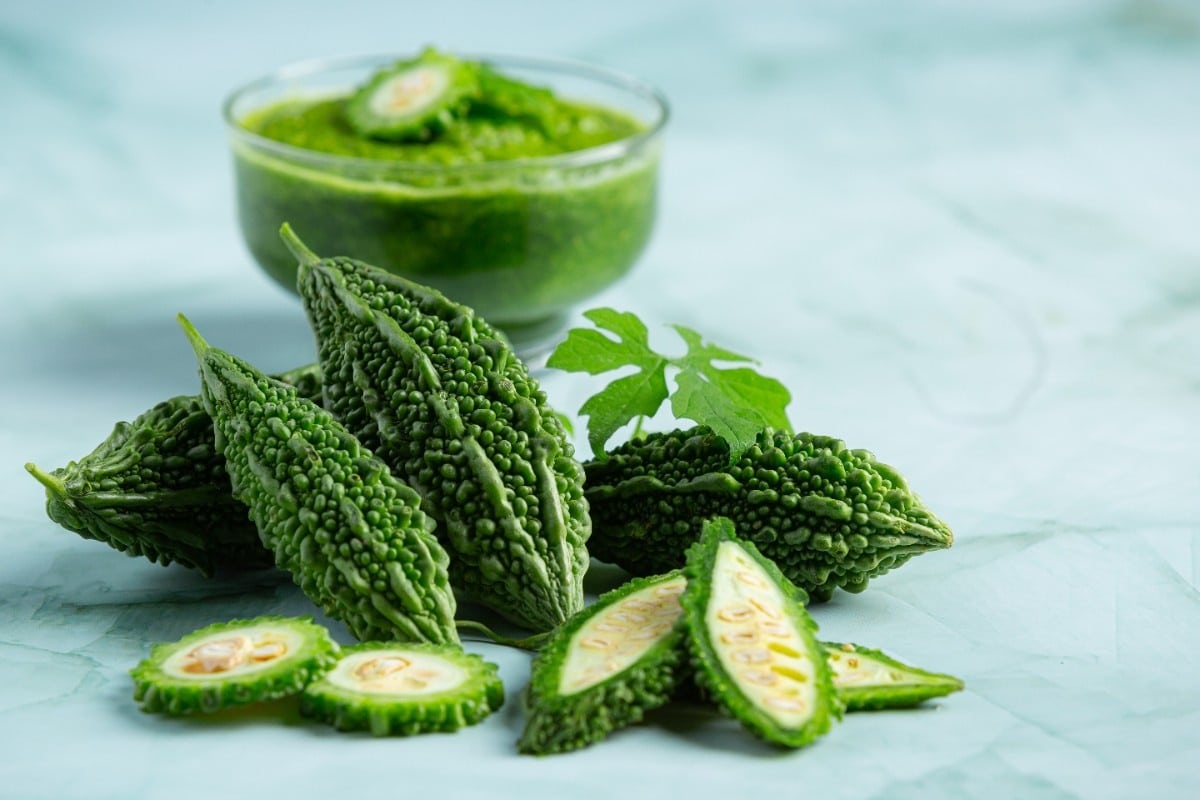
Bitter Gourd
Bitter gourd cleanses the liver, improves digestion, and supports immunity. Rich in vitamin C with antiviral and detoxifying properties, it is ideal for a healthy monsoon diet.
Include it in light curries, stir-fries, or sambhar. Even though it tastes bitter, its health benefits are excellent for maintaining digestive balance, preventing bloating, and protecting the body against seasonal infections that thrive in humid monsoon weather.
4. Use Immunity-Boosting Spices
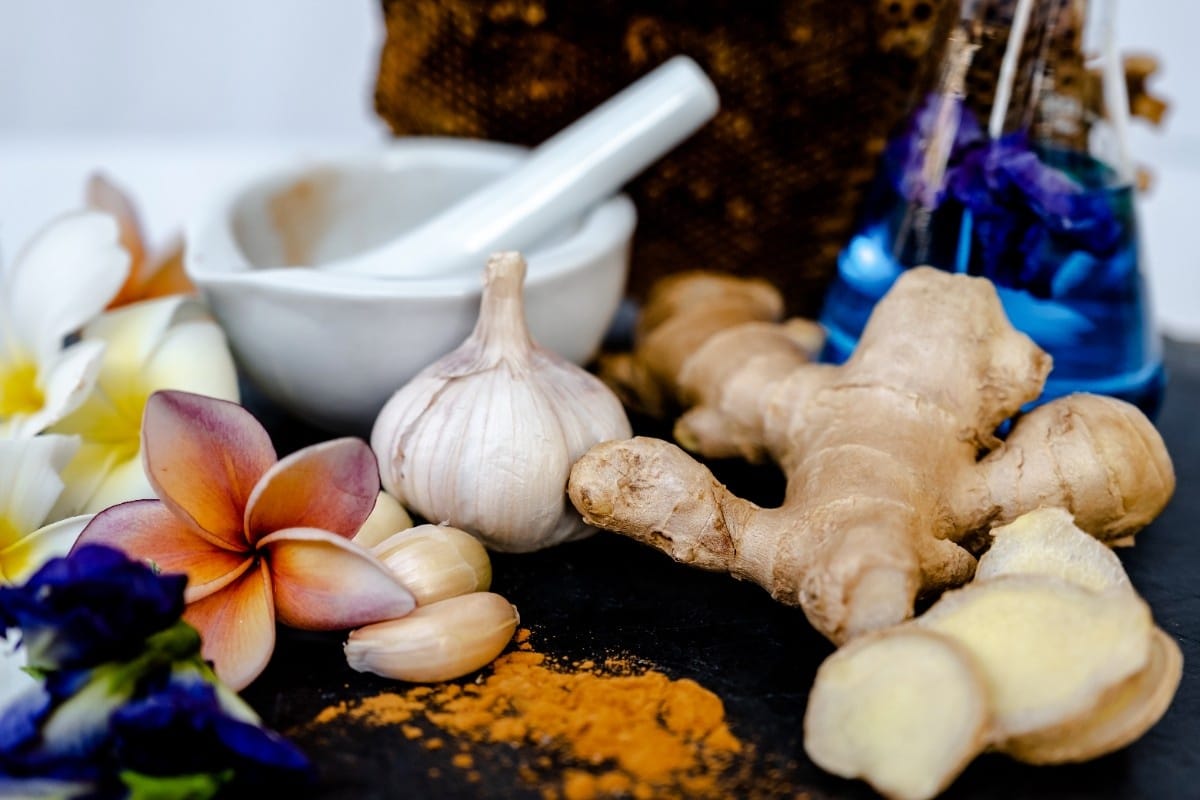
Ginger Garlic Black Pepper and Turmeric
Spices like ginger, garlic, black pepper, and turmeric enhance immunity and aid digestion during the rainy season. Ginger reduces bloating, garlic fights infections, black pepper improves metabolism, and turmeric has antimicrobial and anti-inflammatory properties.
Add them to teas, soups, curries, or stir-fries. Including these spices daily not only boosts immunity but also strengthens the digestive system, making the body more resilient to monsoon-related illnesses.
Explore our complete guide on must-have Indian spices to maximise their health benefits in your monsoon diet.
5. Eat Seasonal Fruits and Vegetables
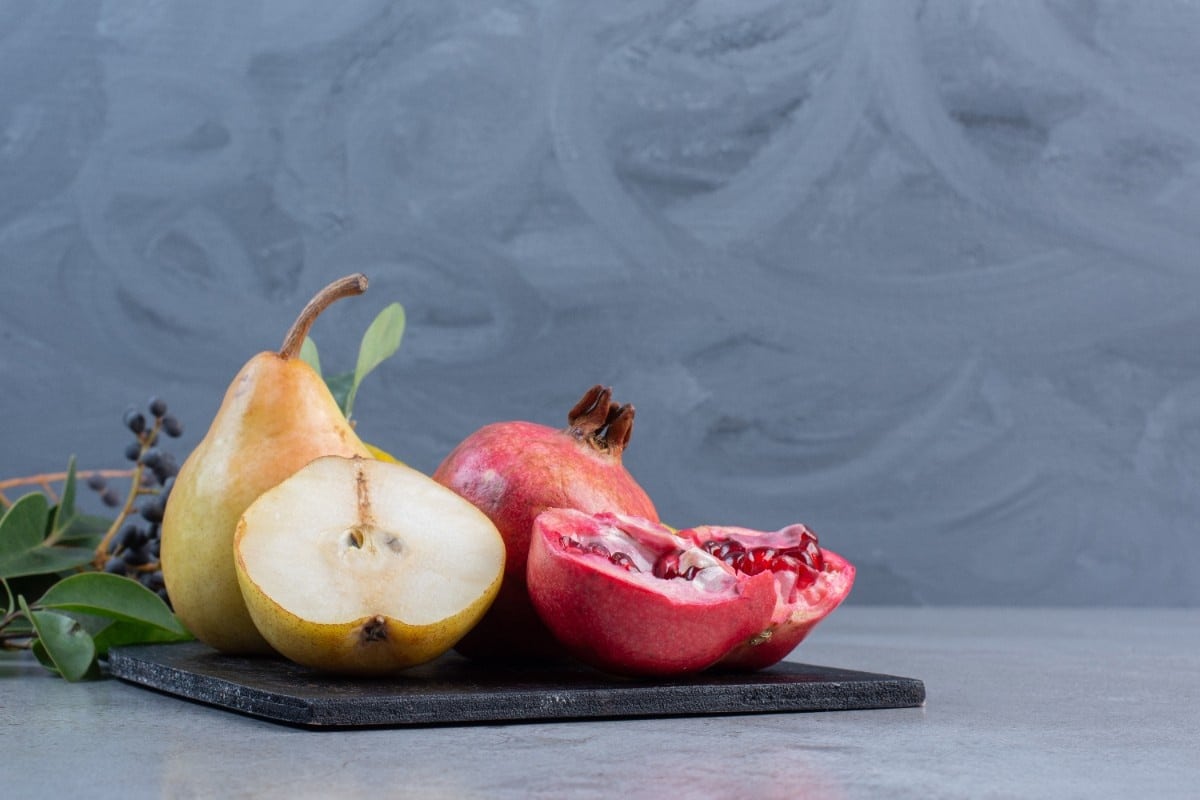
Pomegranates and Pears
Seasonal fruits are gentle on digestion and provide essential nutrients. For instance, pomegranates are rich in antioxidants, while pears and apples supply fiber and vitamin C. Similarly, seasonal vegetables such as bottle gourd, spinach, pumpkin, and ridge gourd can be steamed or lightly cooked to reduce bacterial contamination and enhance digestibility.
Including seasonal produce ensures proper nutrition, hydration, and immunity support during the monsoon, keeping your digestive system comfortable and your body energised despite the humid conditions.
6. Include Moong Dal for Protein and Easy Digestion
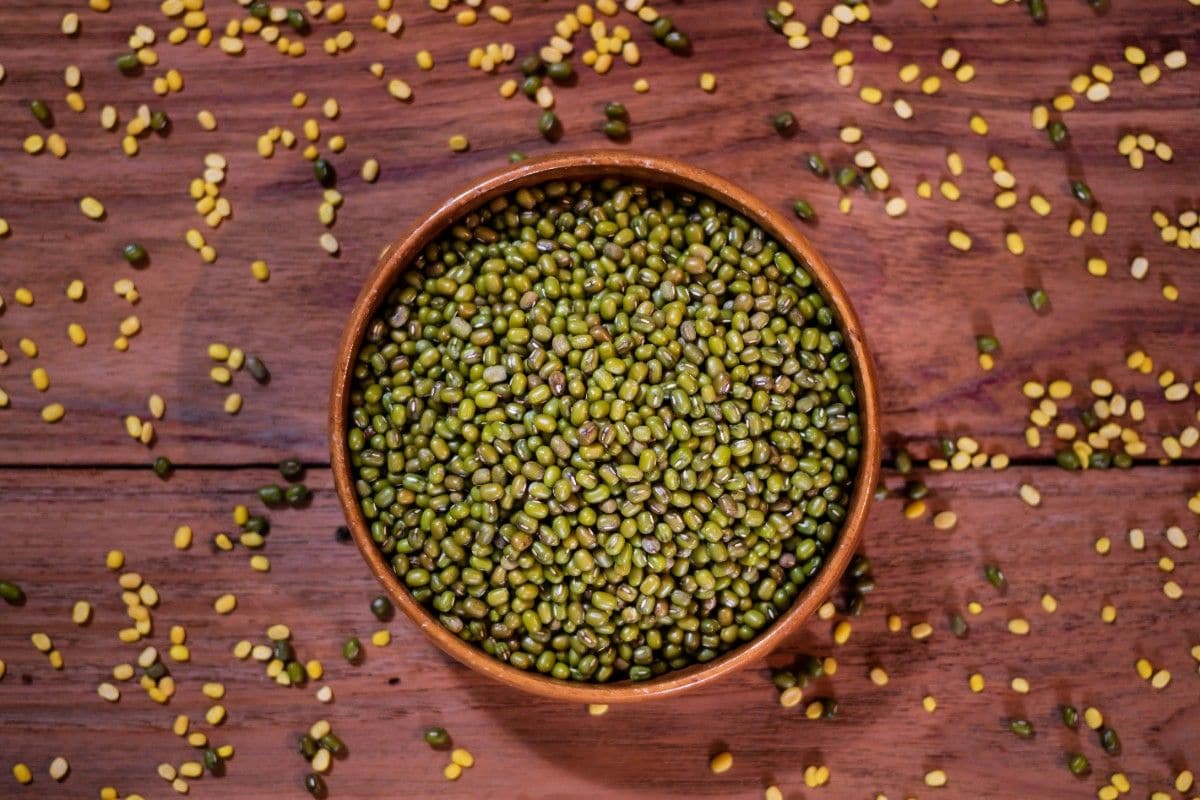
Moong Dal
Moong dal is light, easily digestible, and rich in protein, making it ideal for the rainy season. It supports gut health, prevents bloating, and strengthens immunity.
Enjoy it as a dal, in khichdi, or try the flavourful moong dal chaat recipe for a nutritious twist. Its gentle nature ensures your digestive system isn’t overloaded during high humidity while you still get sustained energy. Regular intake keeps you nourished, digestion smooth, and defenses strong throughout the monsoon.
7. Enjoy Roasted Corn as a Healthy Snack

Corn
Roasted corn, or makka, is a nutritious and monsoon‑safe snack rich in fibre and antioxidants. It provides energy without feeling heavy on the stomach and is safer than street food during humid weather. Sprinkle lemon juice, black salt, or mild spices for flavour.
Regularly including roasted corn as a snack supports digestion, keeps you energised, and provides a wholesome alternative to oily or fried foods that can aggravate the stomach in rainy season conditions.
Try this flavourful peanut & corn salad recipe for a twist on a classic monsoon snack.
8. Drink Warm Herbal Teas for Immunity and Digestion
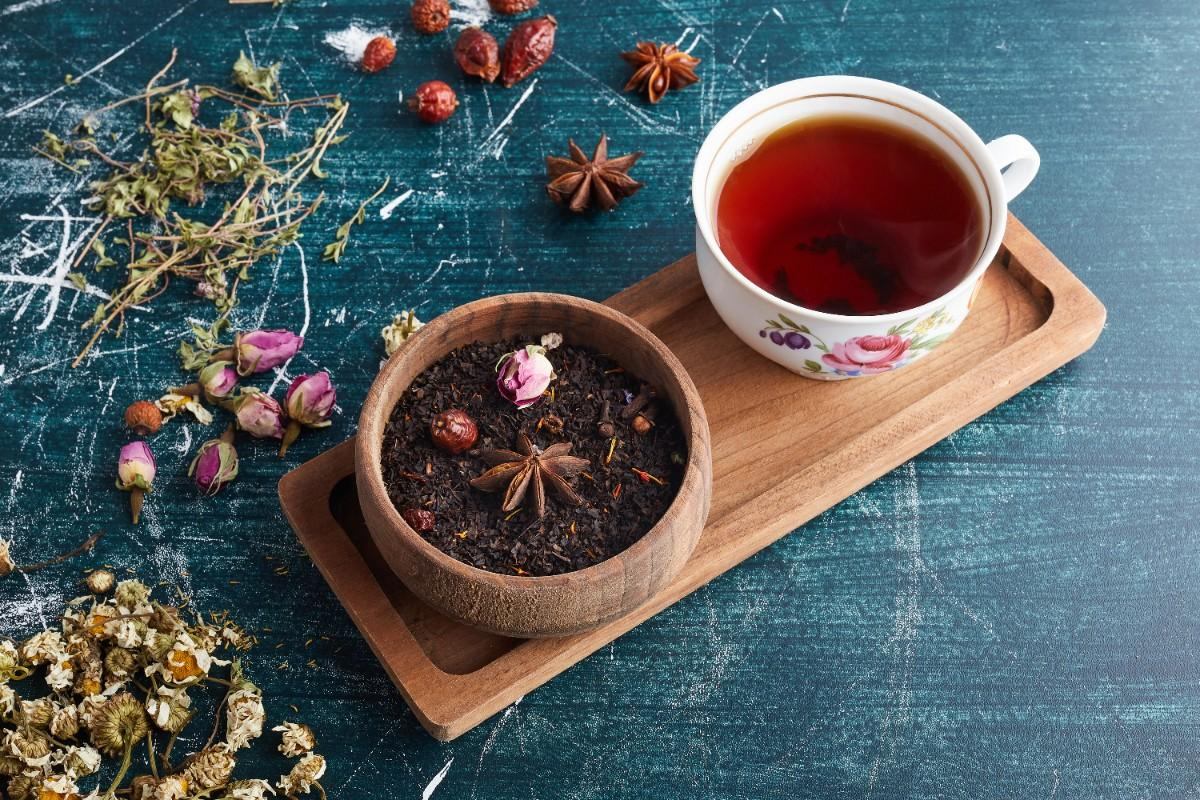
Herbal Teas
Warm herbal teas such as tulsi (holy basil), ginger, pepper, and mint tea strengthen immunity and aid digestion. They soothe the throat, improve metabolism, and help fight seasonal infections. Adding spices like cinnamon or cardamom to a cup of tea enhances flavour and antioxidant benefits.
Regular consumption keeps the body warm and hydrated during humid monsoon weather, supports smooth digestion, and offers a comforting daily ritual that strengthens overall health and protects against common monsoon illnesses.
9. Include Turmeric Milk Before Bed
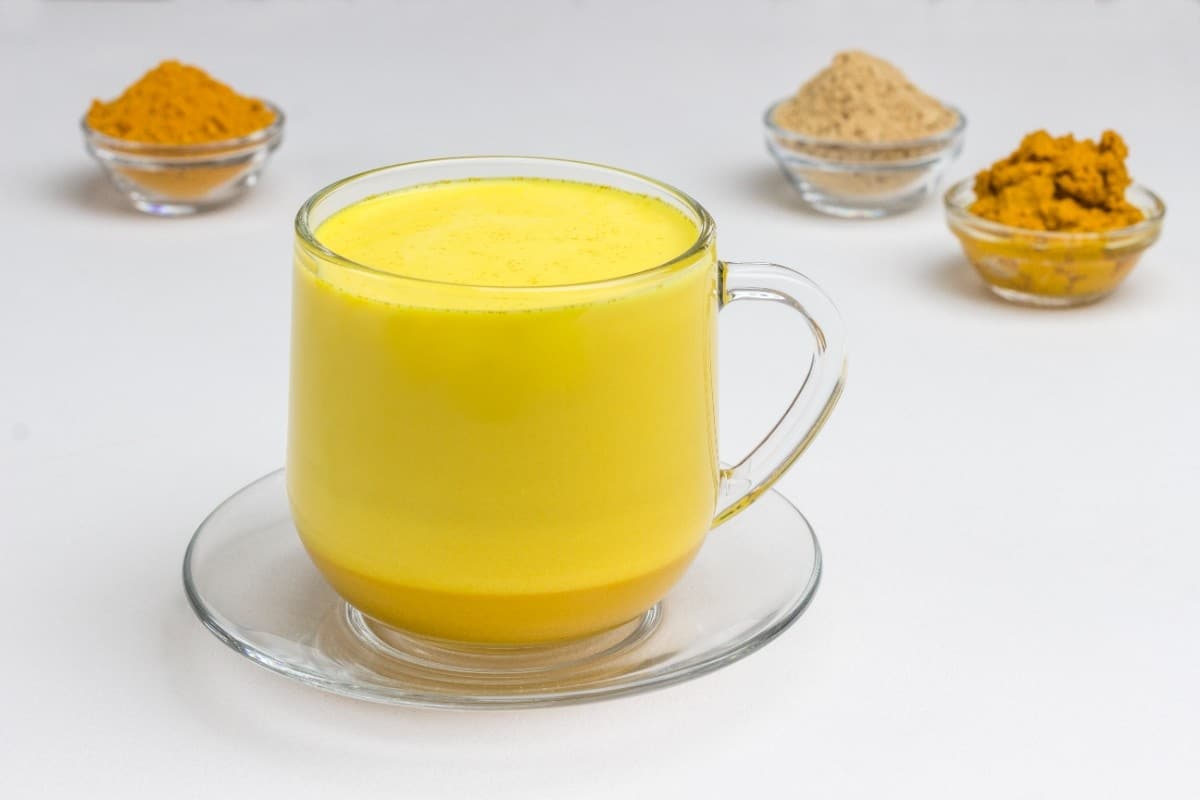
Turmeric Milk
Turmeric milk, or golden milk, is a traditional monsoon drink that strengthens immunity and protects against colds and flu. Curcumin in turmeric has antimicrobial, anti-inflammatory, and antioxidant properties, supporting overall health.
Drinking it warm before bedtime aids digestion and soothes the body. A pinch of black pepper or cinnamon enhances absorption and taste. Regular consumption strengthens immunity, improves gut health, and offers a comforting monsoon bedtime routine.
10. Stay Hydrated with Boiled or Filtered Water and Fresh Coconut Water

Fresh Coconut Water
Proper hydration is crucial during the monsoon, as humidity can slow digestion. Drink 8–10 glasses of boiled or filtered water daily, and complement this with fresh coconut water for natural electrolytes, which is a great monsoon season beverage.
Staying hydrated prevents bloating, supports smooth digestion, and strengthens immunity. It also keeps you refreshed, energised, and comfortable despite humid weather. Prioritising hydration ensures your body functions efficiently and helps reduce the risk of seasonal illnesses.
11. Include Buttermilk for Digestion and Cooling
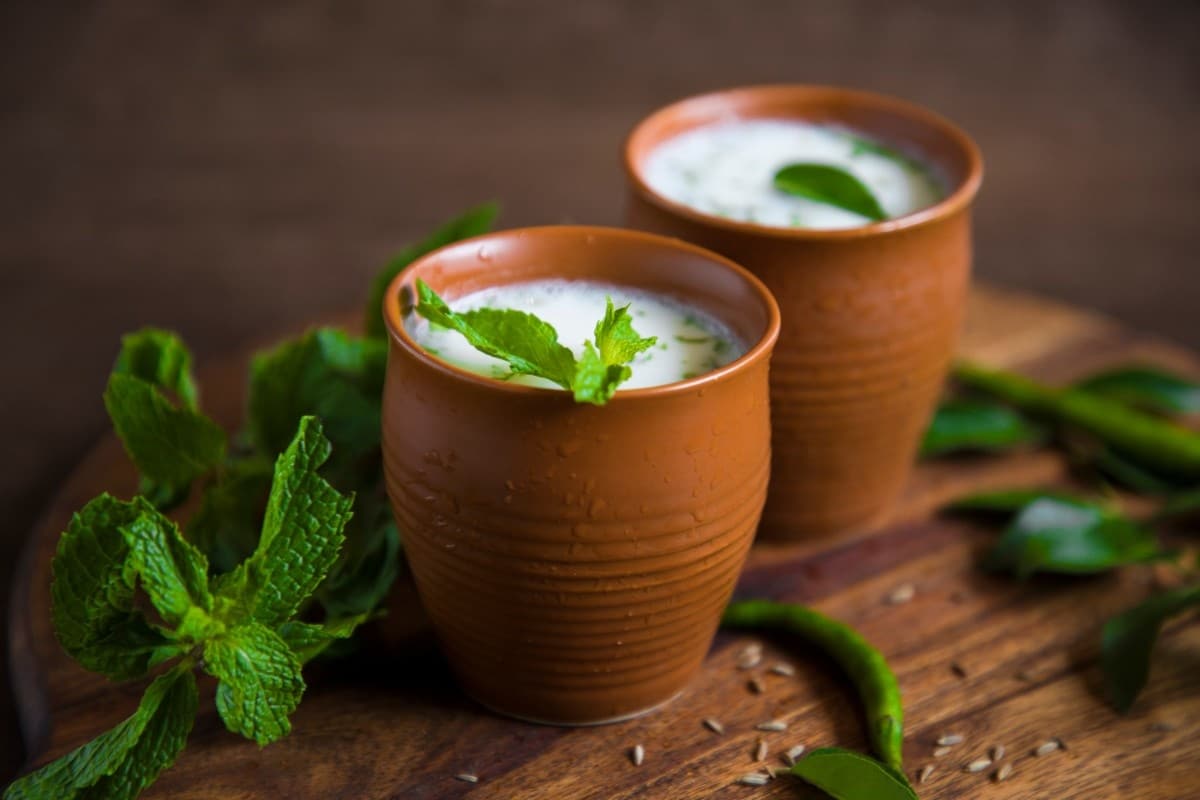
Fresh Buttermilk
Buttermilk, or chaas, is a light, probiotic-rich drink that aids digestion and keeps the body cool. It replenishes fluids, supports gut health, and prevents acidity. You can flavour it with roasted cumin, mint, or black salt.
Including monsoon-friendly drinks like masala buttermilk in your diet strengthens the digestive system and immunity while maintaining hydration, making it an ideal daily addition during the rainy season.
12. Opt for Light Millets or Khichdi for Easy Energy
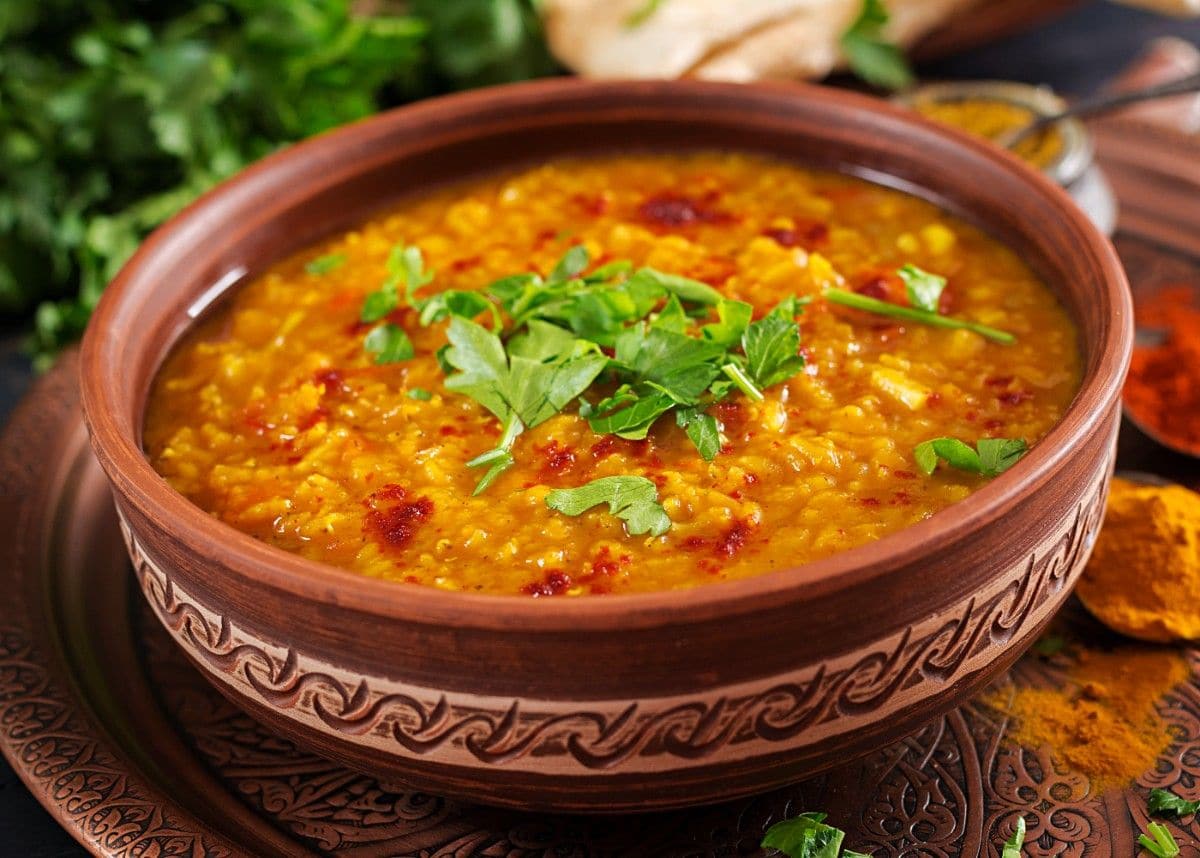
Moong Dal Khichdi
Light millets like foxtail, barnyard, or little millet are perfect monsoon staples. They provide sustained energy, are easy to digest, and prevent heaviness. Millets are rich in fiber, minerals, and protein.
Including monsoon-friendly foods like moong dal khichdi in your diet supports digestion, immunity, and energy levels. Gentle on the stomach, khichdi provides hydration and comfort, making it an ideal rainy season meal without overburdening the digestive system.
13. Eat Steamed or Cooked Vegetables
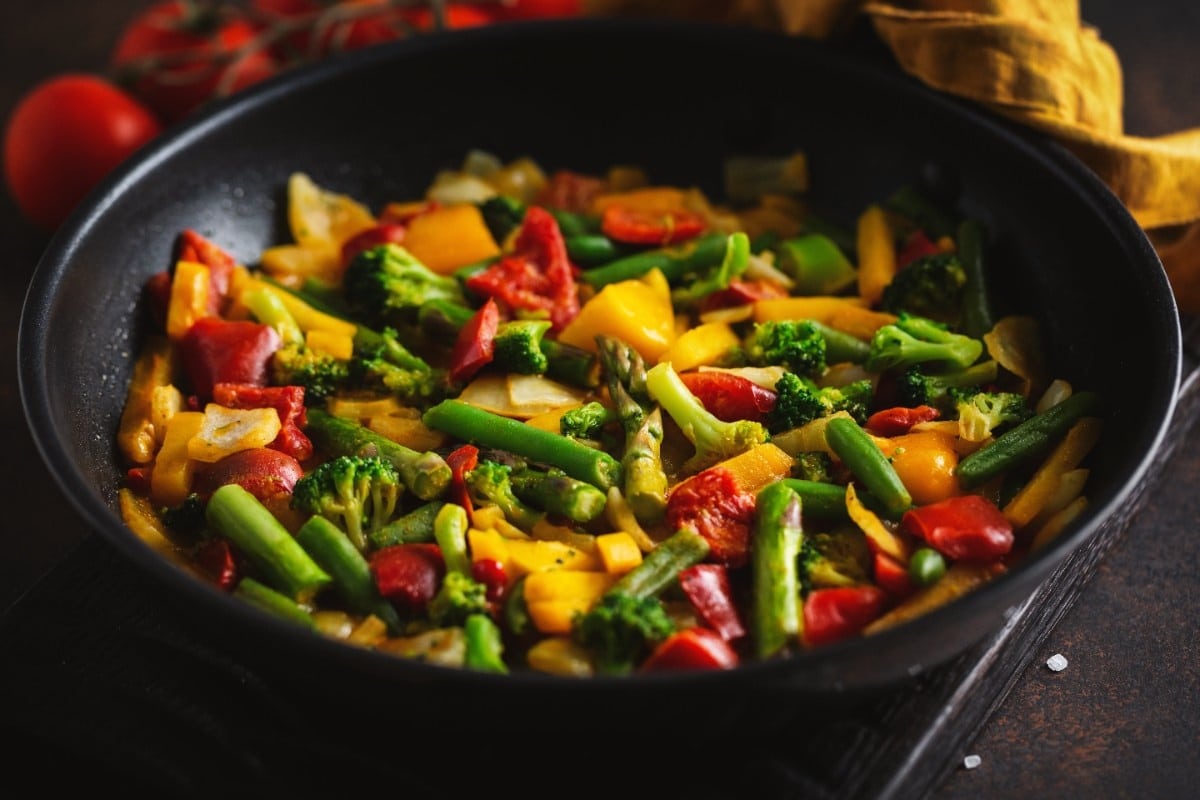
Steamed vegetables
During the monsoon, raw leafy greens can harbor bacteria due to humidity. Steam or lightly cook vegetables such as carrots, beans, pumpkin, and bottle gourd. Cooking preserves nutrients while ensuring food safety and easy digestion. Combined with immunity-boosting spices, cooked vegetables provide vitamins, minerals, and antioxidants.
Regularly including them ensures balanced meals, supports digestive health, and minimizes the risk of monsoon-related infections, making them a staple for a healthy rainy season diet.
14. Consume Yogurt and Other Probiotic Foods

Yogurt
Yogurt and other probiotic‑rich foods maintain healthy gut flora, improving digestion and reducing bloating. They strengthen immunity and protect against harmful bacteria, which thrive in humid conditions.
Include yogurt in meals or try a cooling boondi raita recipe as a snack. Regular consumption ensures smooth digestive function, enhances nutrient absorption, and helps the body fight seasonal infections in this rainy season.
15. Have Nutritious Soups for Hydration and Immunity
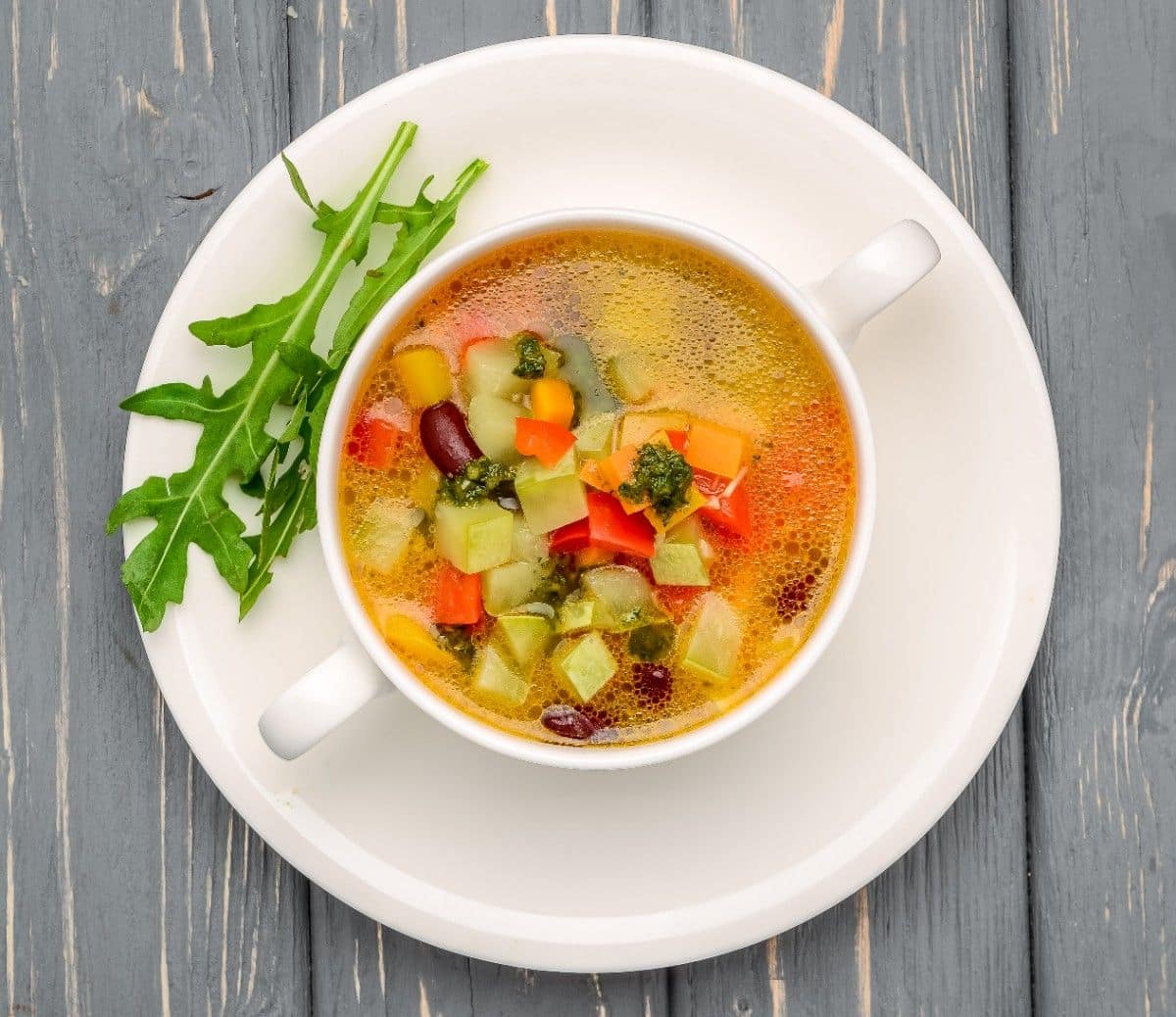
vegetable soup
Warm soups made with vegetables, lentils, and spices like ginger, garlic, or black pepper are excellent for the monsoon. They are light, easy to digest, and help maintain hydration. Soups provide essential vitamins, minerals, and antioxidants to fight infections and strengthen immunity.
Enjoy a bowl of hot soup for lunch or dinner to nourish the body, keep digestion smooth, and ensure you remain energised and healthy during the rainy season. Including vegetables in your soup boosts nutrition and makes it even more beneficial for immunity and gut health.
16. Prefer Dry Fruits and Nuts for Energy
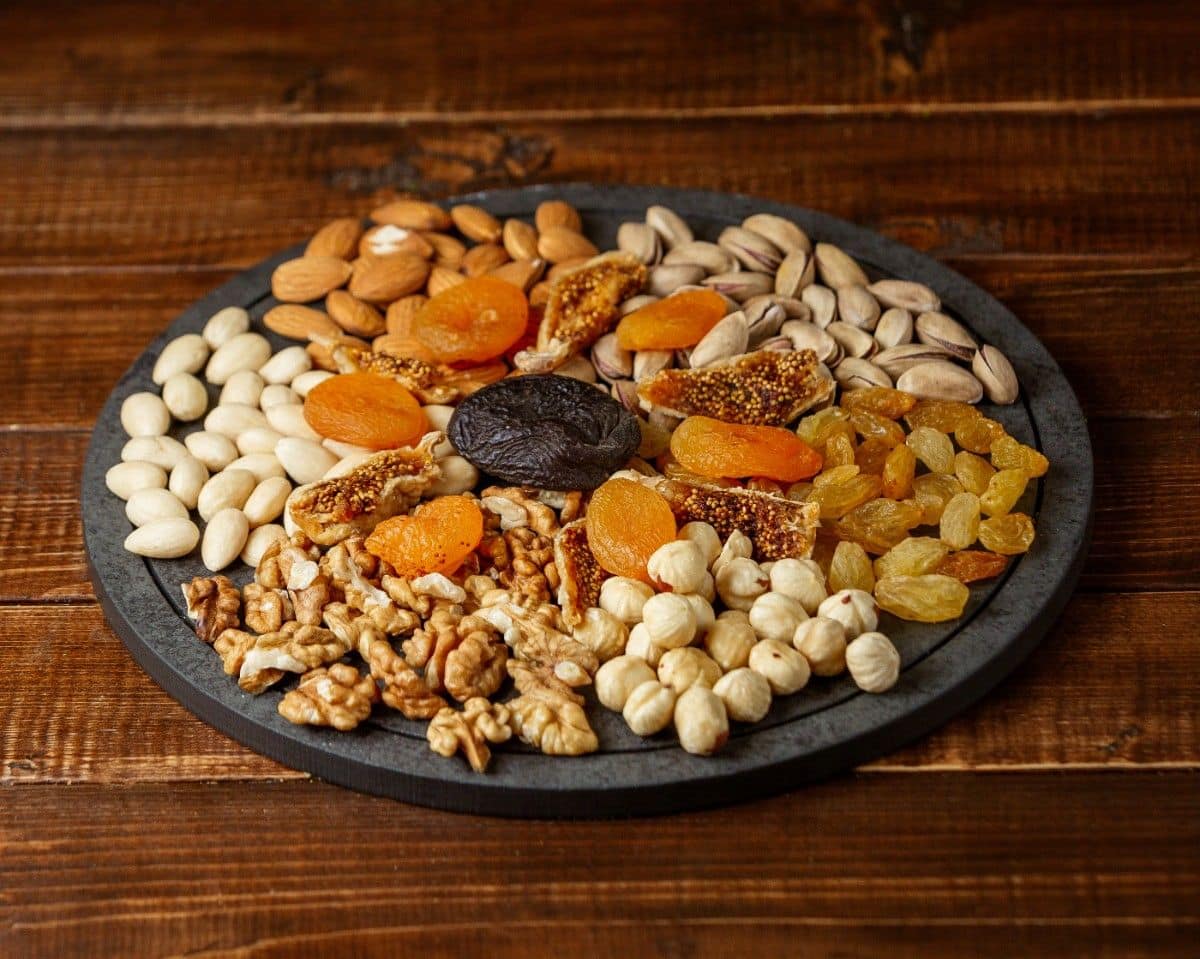
Dry Fruits and Nuts
Almonds, walnuts, and cashews provide protein, healthy fats, and essential minerals. They boost energy, strengthen immunity, and support digestion without feeling heavy. Dry fruits and nuts are ideal snacks for the monsoon, offering sustained energy and preventing unhealthy cravings.
Including them in your daily diet ensures nutrient balance, helps maintain stamina, and contributes to overall health while keeping the body resilient against monsoon-related fatigue or infections.
What Should You Avoid During Monsoon?
Rainy days are cozy, but some foods can turn your monsoon into a digestive disaster! The humid weather makes certain foods more prone to contamination and can upset your stomach. Here’s what you must avoid to stay healthy and energised during the rainy season:
1. Avoid Seafood and Mushrooms
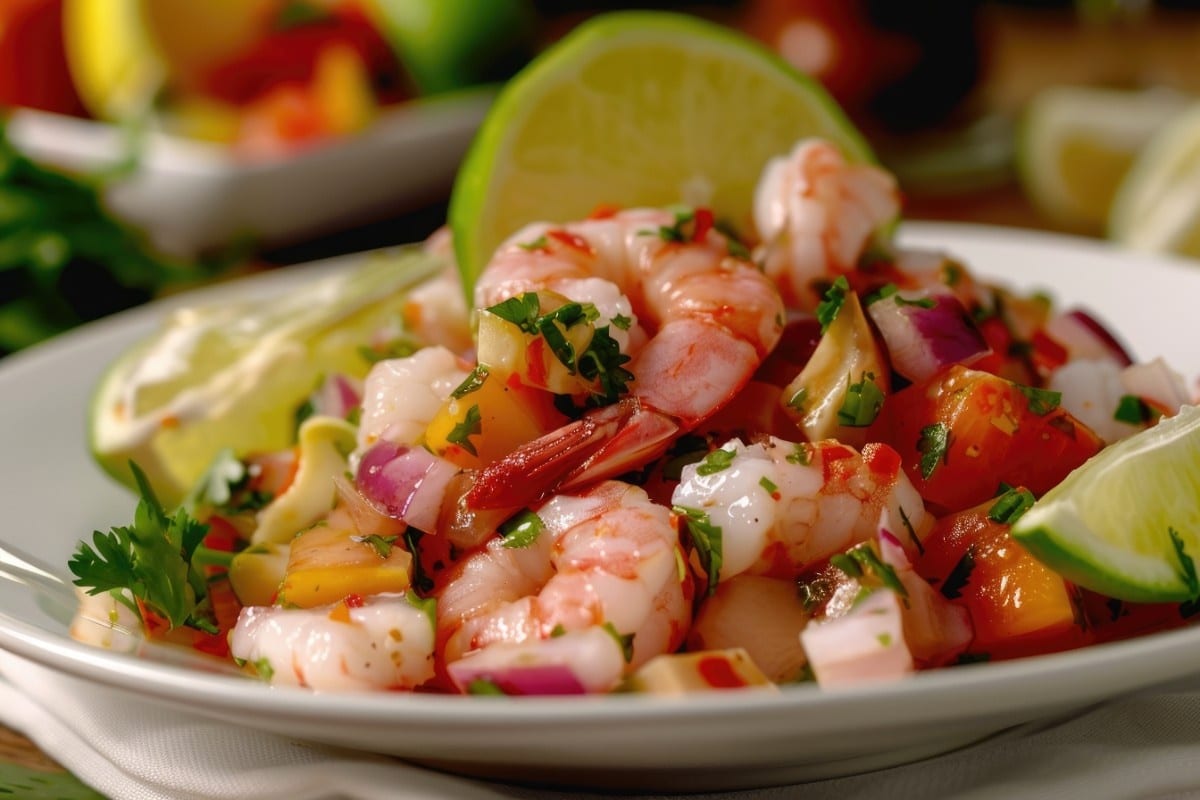
Seafood
Fish, prawns, and mushrooms are highly prone to contamination during the rainy season. Humid and wet conditions create an ideal environment for bacteria and fungi to grow, increasing the risk of food poisoning. Limiting these foods during the monsoon helps protect your digestive system and reduces the chances of infections, stomach upset, and other monsoon-related illnesses.
2. Avoid Raw Leafy Greens
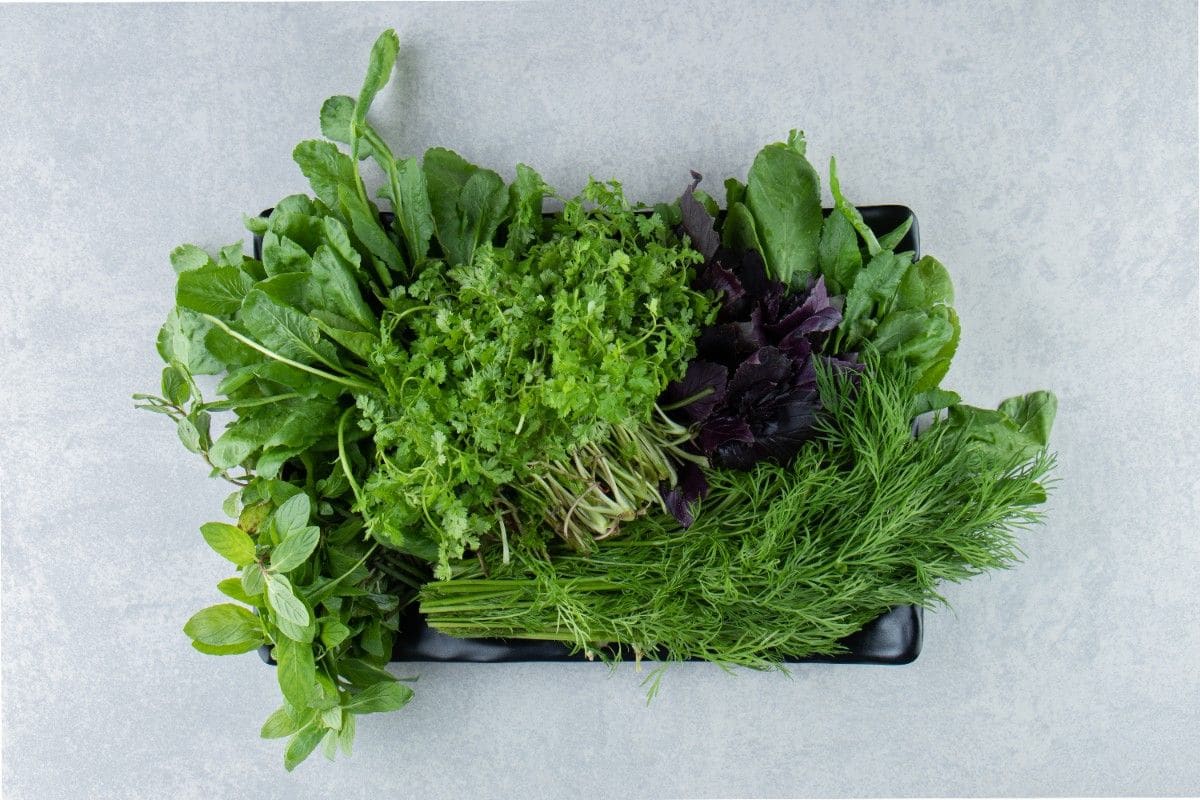
Raw Leafy Greens
Fresh salads and raw leafy vegetables may carry harmful bacteria or viruses during the monsoon. The moisture in the environment promotes microbial growth, making raw consumption risky. Always prefer steaming or lightly cooking greens before eating. This ensures that you still get nutrients safely without compromising digestion or immunity.
3. Avoid High-Water-Content Fruits

Watermelon
Fruits like watermelon, muskmelon, and papaya have high water content and are more prone to contamination in the rainy season. They can also cause bloating or digestive discomfort. Instead, opt for seasonal monsoon fruits such as jamun, pomegranate, and pears, which are safer, nutrient-rich, and gentle on digestion.
4. Avoid Fried Foods
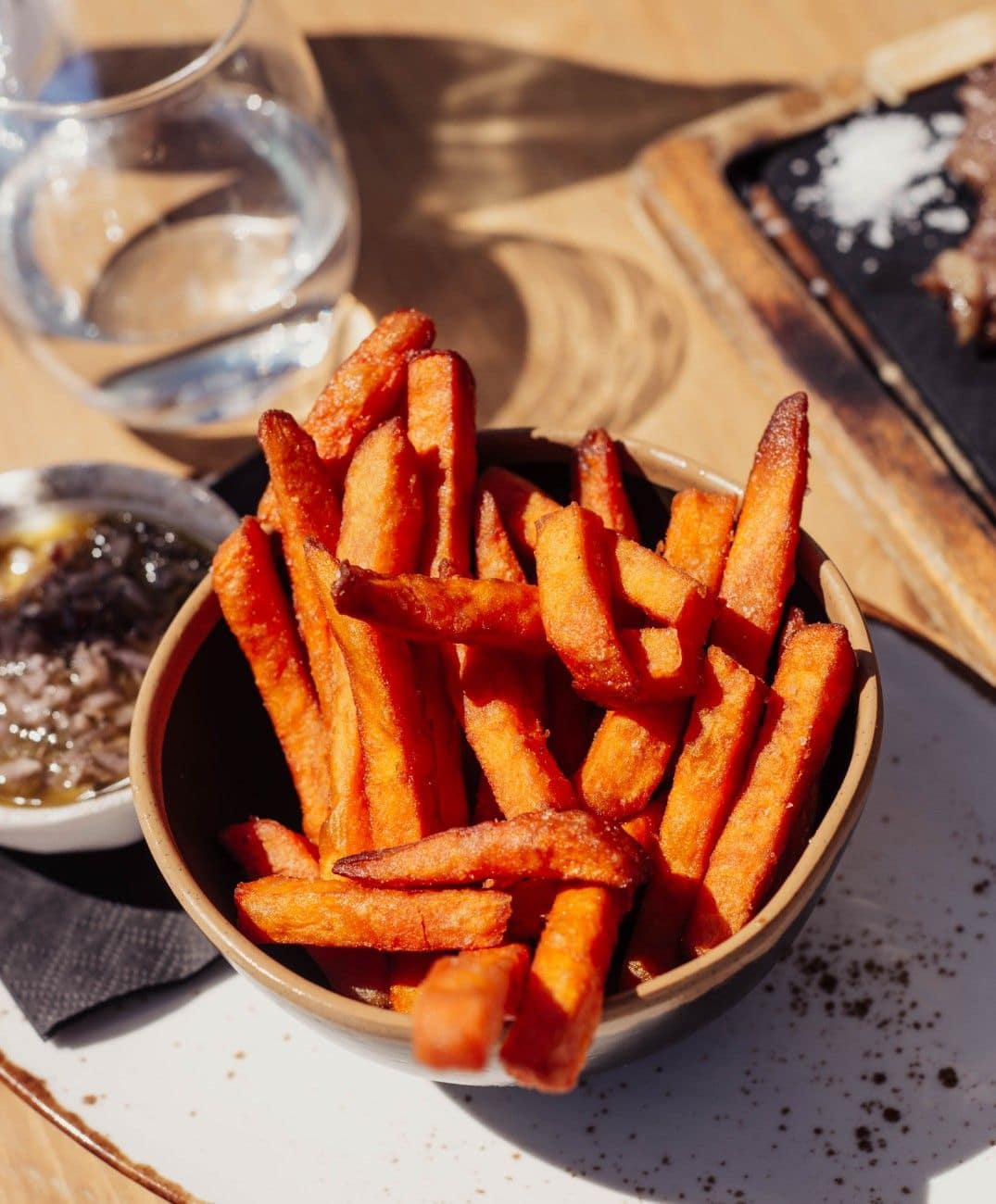
Fried Food
Foods like pakoras, samosas, and deep-fried snacks are heavy and difficult to digest, especially during humid monsoon months. Consuming fried foods can lead to bloating, acidity, and sluggish digestion. Limiting fried items helps maintain digestive comfort and keeps your body light and energised through the rainy season.
5. Avoid Heavy Oils and Spicy Foods
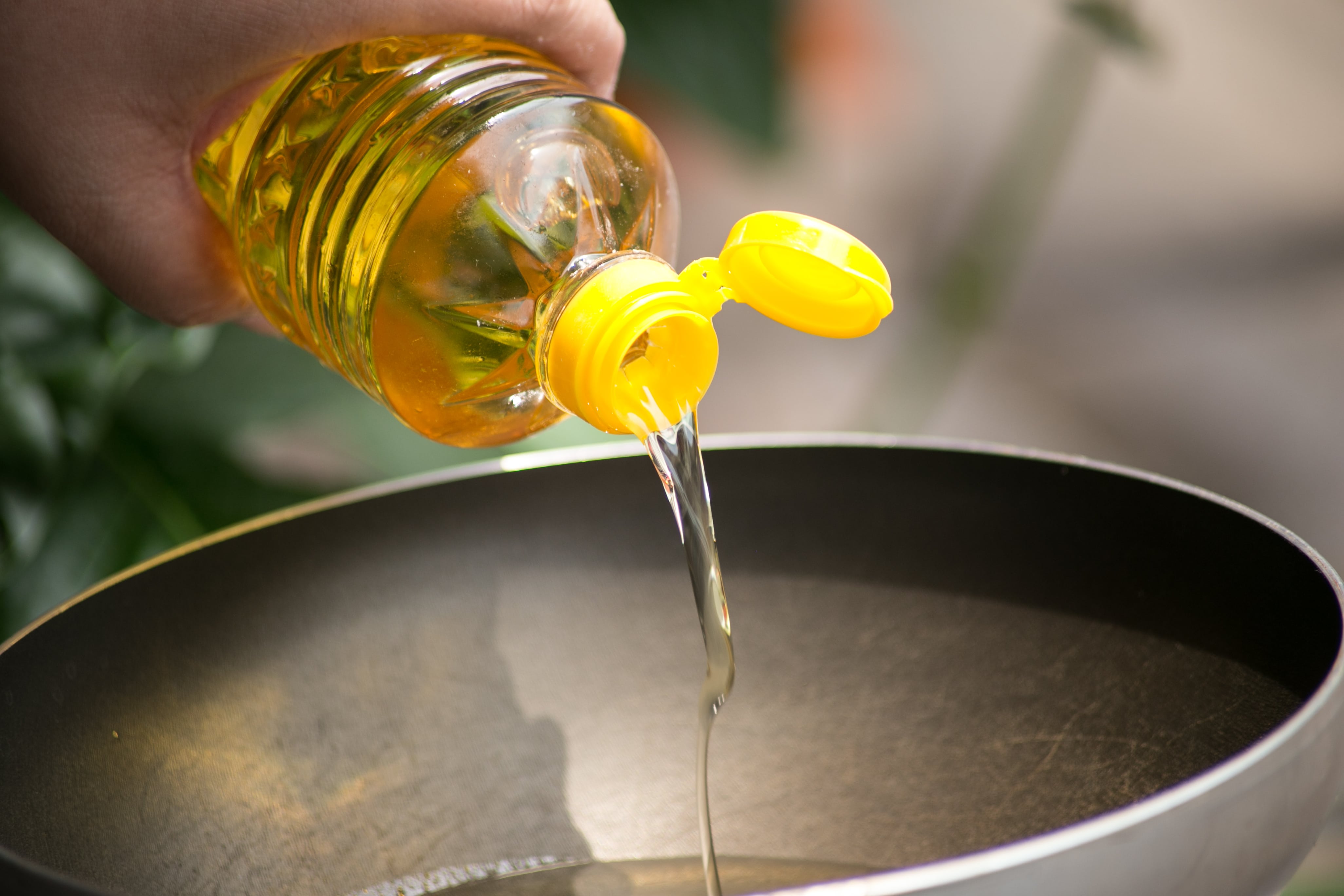
Mustard Oil
Mustard, sesame, or peanut oils, along with very spicy preparations, can aggravate acidity, indigestion, and bloating during the monsoon. The humid weather slows digestion, making it harder for your body to process heavy or spicy meals. Switching to light oils and mild spices protects your stomach and supports smooth digestion.
6. Avoid Street Food

Street Food
Street food often lacks proper hygiene and is highly risky during rainy months. Rain, dust, and humidity increase the chances of contamination with bacteria, viruses, or fungi. Consuming street snacks can lead to foodborne illnesses, stomach infections, and indigestion. Prefer freshly cooked home meals to stay safe, healthy, and maintain immunity during the monsoon.
What Does a Sample Monsoon Meal Plan Look Like for Urban Indians?
Following this monsoon diet plan for weight loss ensures you stay light, energetic, and healthy while supporting digestion and immunity during the rainy season:
- Healthy Breakfast Ideas: Start your day with warm water and lemon, followed by a breakfast of light, easily digestible options such as moong dal chilla, oats chilla with chopped apples and almonds, or vegetable upma. These meals provide energy without feeling heavy in the rainy season.
- Mid-Morning Snack Options: Opt for seasonal fruits like pomegranate, guava, or pear. You can also have a small bowl of roasted chana or a cup of warm herbal tea with a few nuts to keep you full and hydrated.
- Balanced Lunch Suggestions: Include home-cooked meals such as brown rice or millets with moong dal, lightly sautéed seasonal vegetables, and a bowl of curd. Add immunity-boosting spices like turmeric, ginger, and garlic for digestion and protection against monsoon illnesses.
- Evening Snacks for Energy: Choose light snacks like boiled corn, sprouts chaat, or a glass of buttermilk with roasted flaxseeds. Avoid fried and oily street food to prevent bloating and indigestion.
- Light and Nutritious Dinner Options: Finish the day with a warm bowl of vegetable soup or tofu, and a small portion of khichdi. Keep dinners early and light to aid digestion and improve sleep, supporting metabolism and overall health during the monsoon.
Conclusion
The monsoon season brings a unique set of challenges for digestion, immunity, and overall health. By focusing on seasonal fruits and vegetables, hydration, and immunity-boosting spices, you can enjoy the monsoon food items without compromising on taste or wellness. Avoiding risky foods like seafood, mushrooms, and raw leafy greens further protects you from infections and digestive issues.
Planning your meals thoughtfully, starting the day with warm water and lemon, and including light, balanced options for breakfast, lunch, and dinner can help manage weight while keeping your body strong. With mindful eating, proper hydration, and adequate sleep, you can sail through the rainy season feeling energised and healthy.
A well-planned monsoon diet isn’t just about restriction; it’s about enjoying the right foods at the right time to nourish your body and immunity.
Frequently Asked Questions
How can I boost my immunity with my monsoon diet?
Include monsoon season food like jamun, bottle gourd, and moong dal. Pair them with garlic, ginger, turmeric, tulsi, yogurt, and herbal teas. These foods strengthen immunity, aid digestion, and keep you energised during the rainy season.
Can you suggest some healthy and easy monsoon recipes?
Try light soups, steamed vegetables, moong dal, vegetable poha, and herbal teas. Following simple diet tips for monsoon, like eating seasonal foods and using immunity-boosting spices, helps maintain digestion, energy, and overall health throughout the rainy season.
Are there specific monsoon diet tips for senior citizens?
Seniors should focus on easily digestible foods, warm meals, immunity-boosting spices, and probiotic foods while avoiding street food and heavy fried items.
What probiotic foods are recommended for the monsoon season?
Yogurt, buttermilk, and fermented foods help maintain gut health and support digestion during monsoon. Pair these with seasonal vegetables and light meals for a well-rounded diet during monsoon.
Can you list popular comfort foods that are safe to eat in the rainy season?
Roasted corn, vegetable soups, warm herbal teas, light khichdi, and steamed or lightly cooked vegetables make safe, comforting choices.
What is the easiest food to digest in the monsoon?
Moong dal, bottle gourd, brown rice, steamed vegetables, and lightly cooked soups are gentle on digestion.
Which fruits to avoid in the monsoon?
Watermelon, muskmelon, and other high-water-content fruits can cause bloating and are prone to contamination; stick to apples, pears, jamun, and pomegranates.
How does the monsoon diet impact the skin health?
A healthy diet for monsoon with seasonal fruits, light-cooked veggies, and immunity-boosting spices supports skin hydration, prevents infections, and reduces breakouts. Avoid oily, fried, or contaminated foods to protect skin from germs and humidity-related issues.

